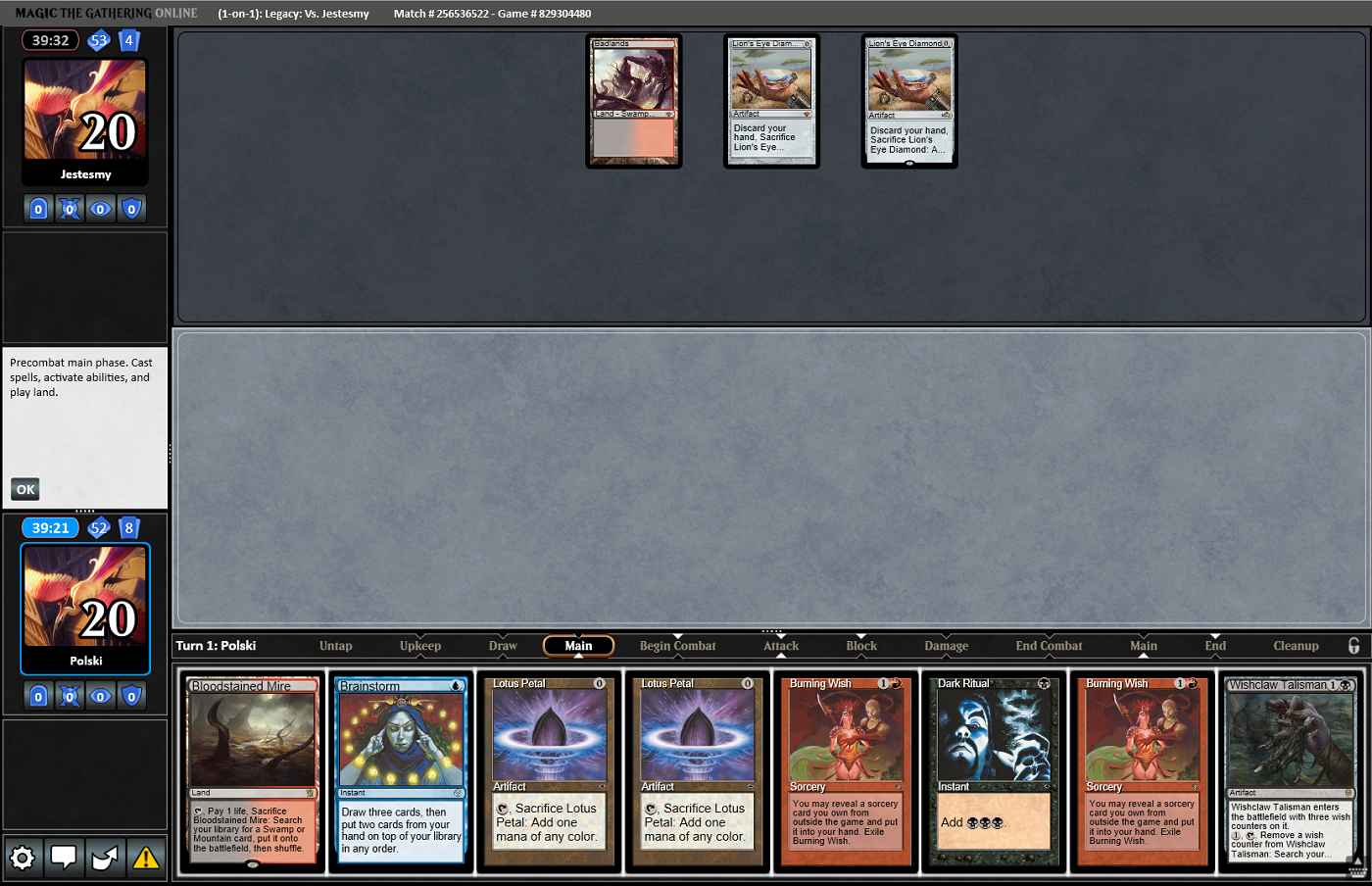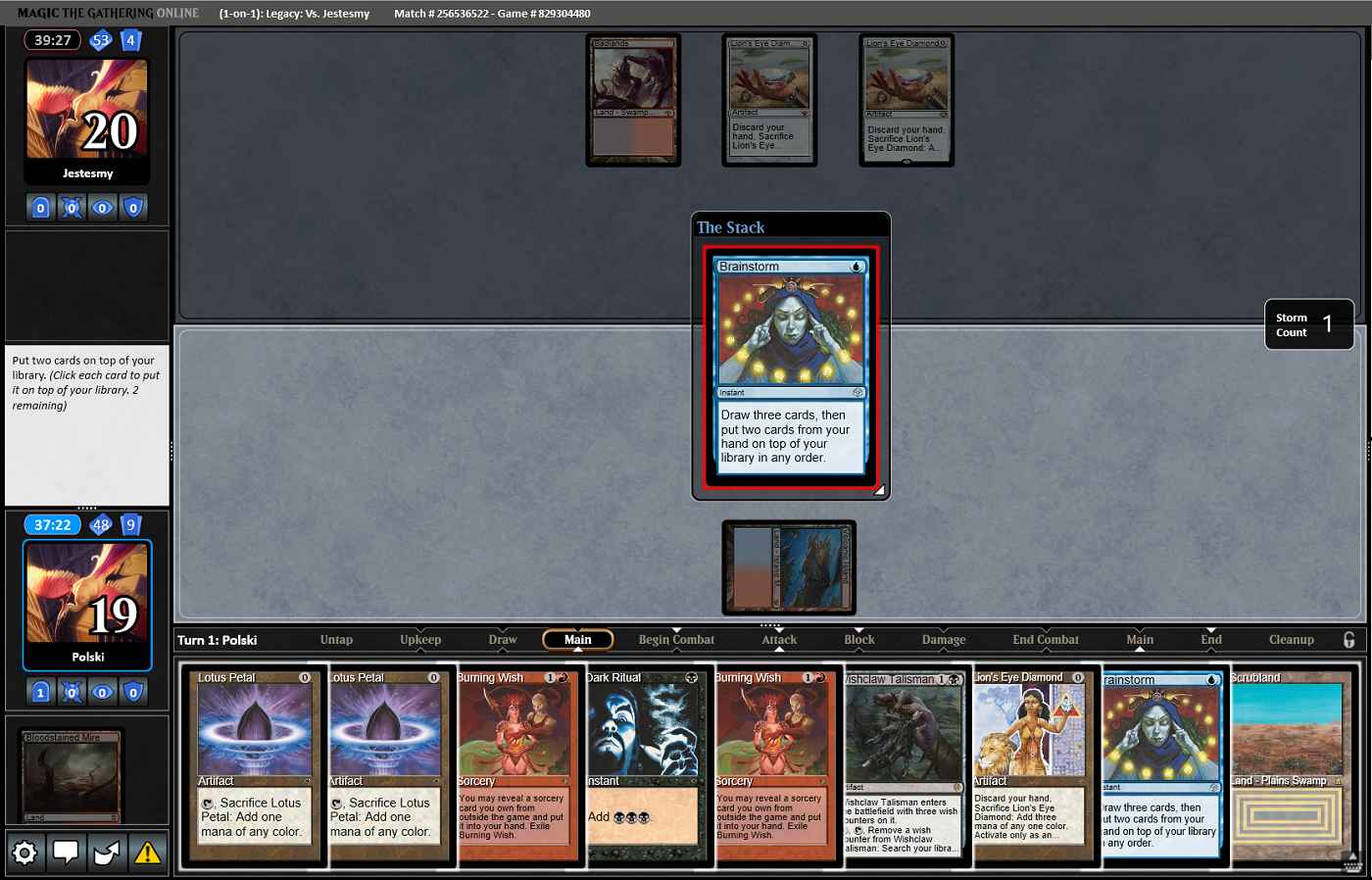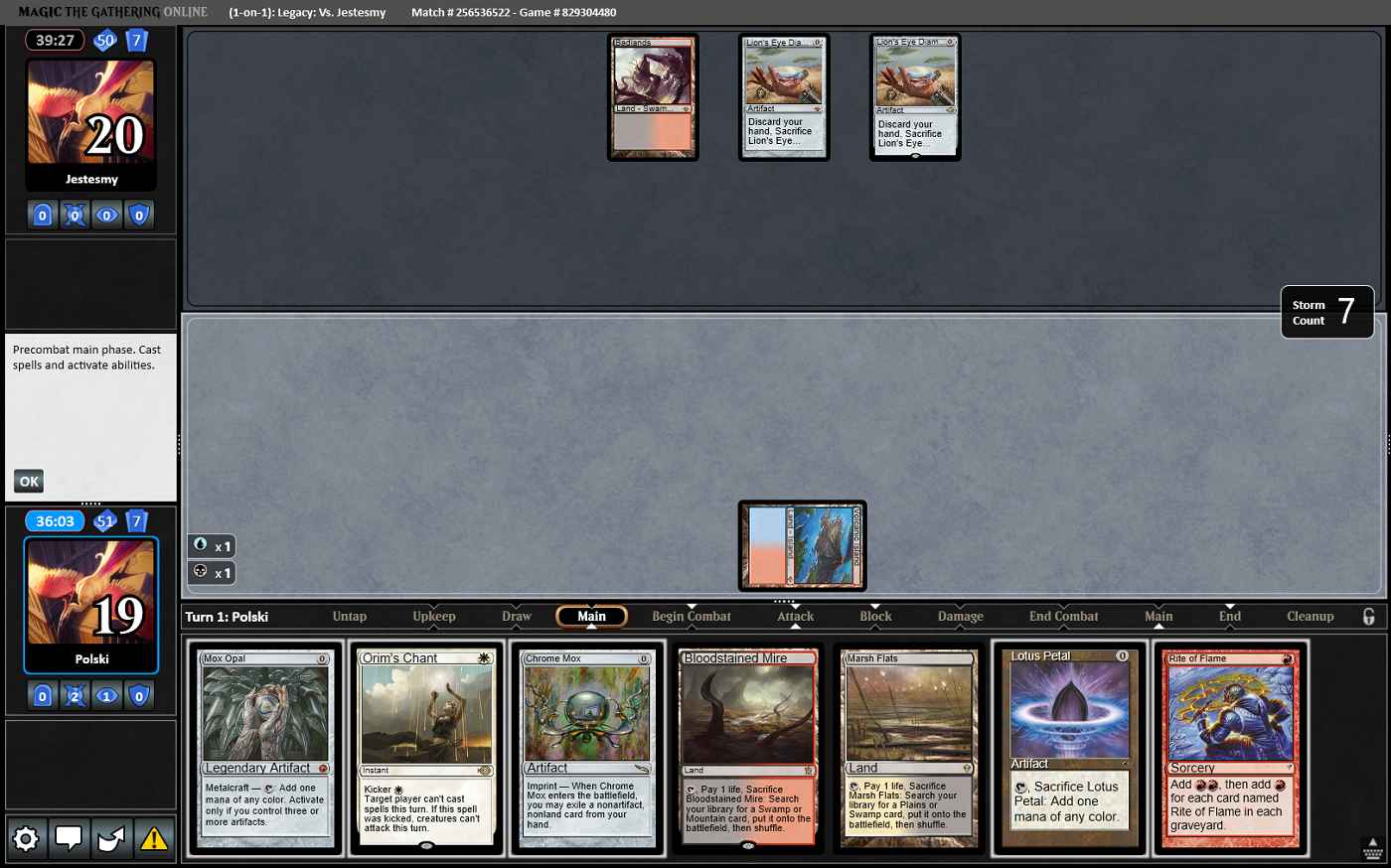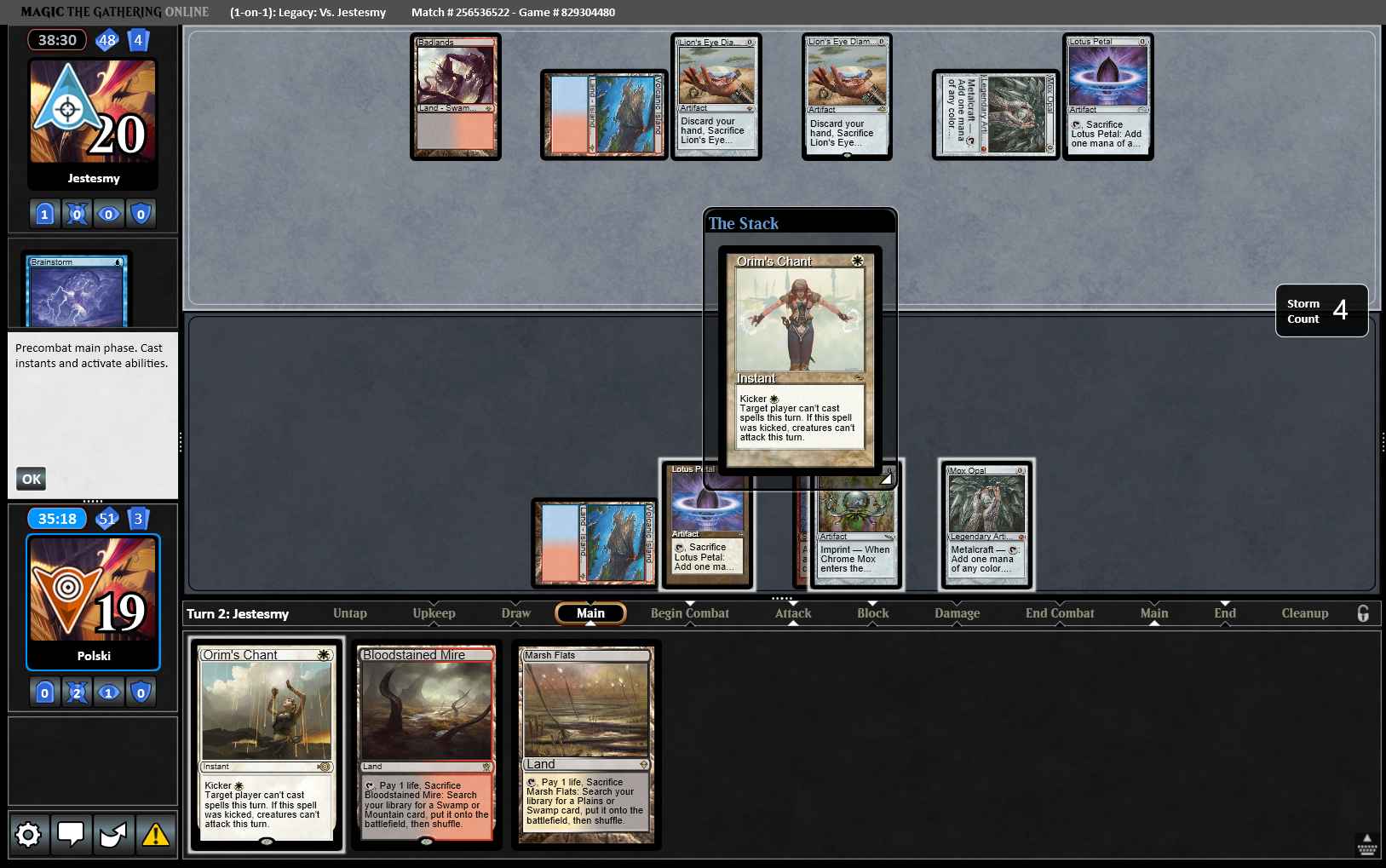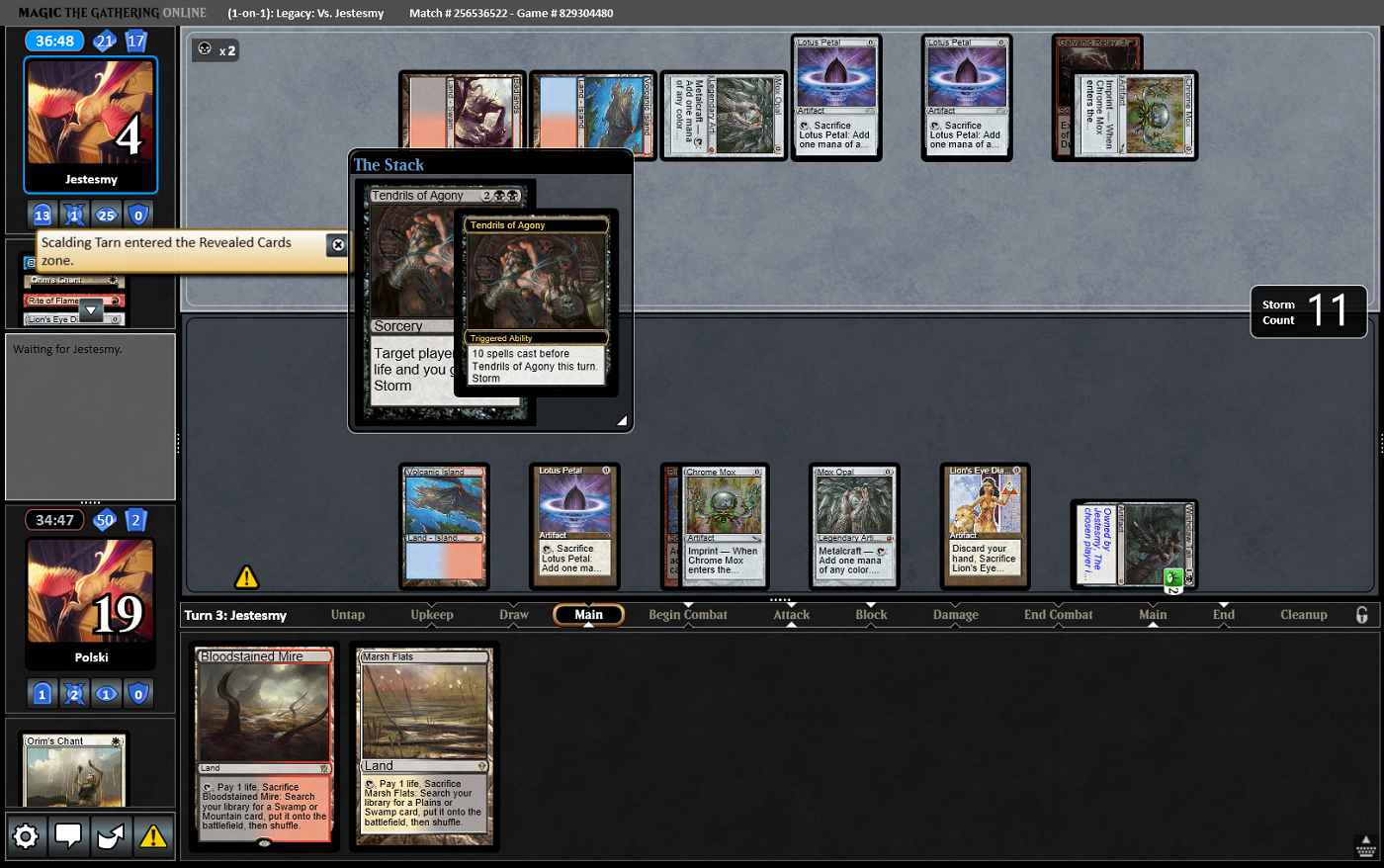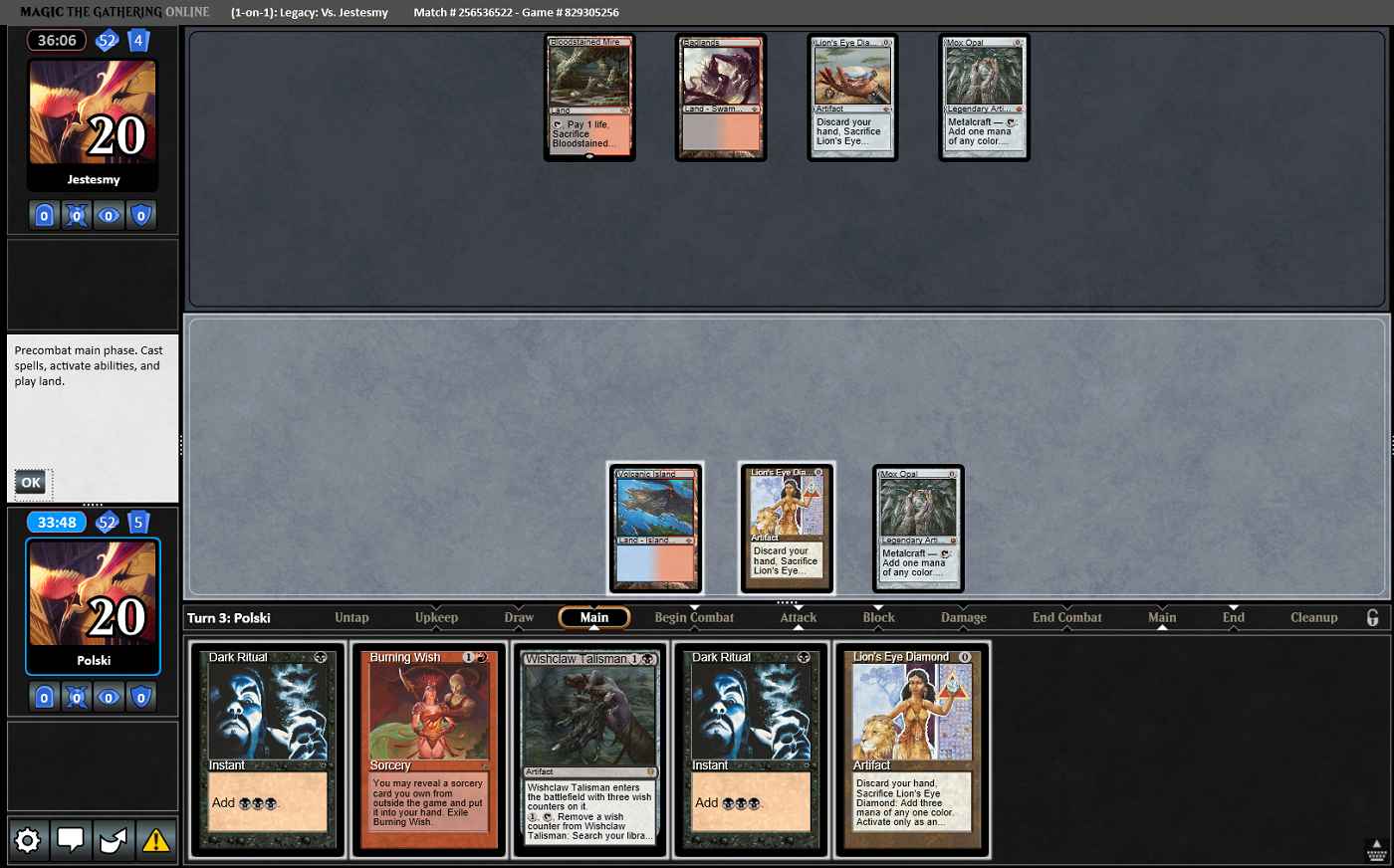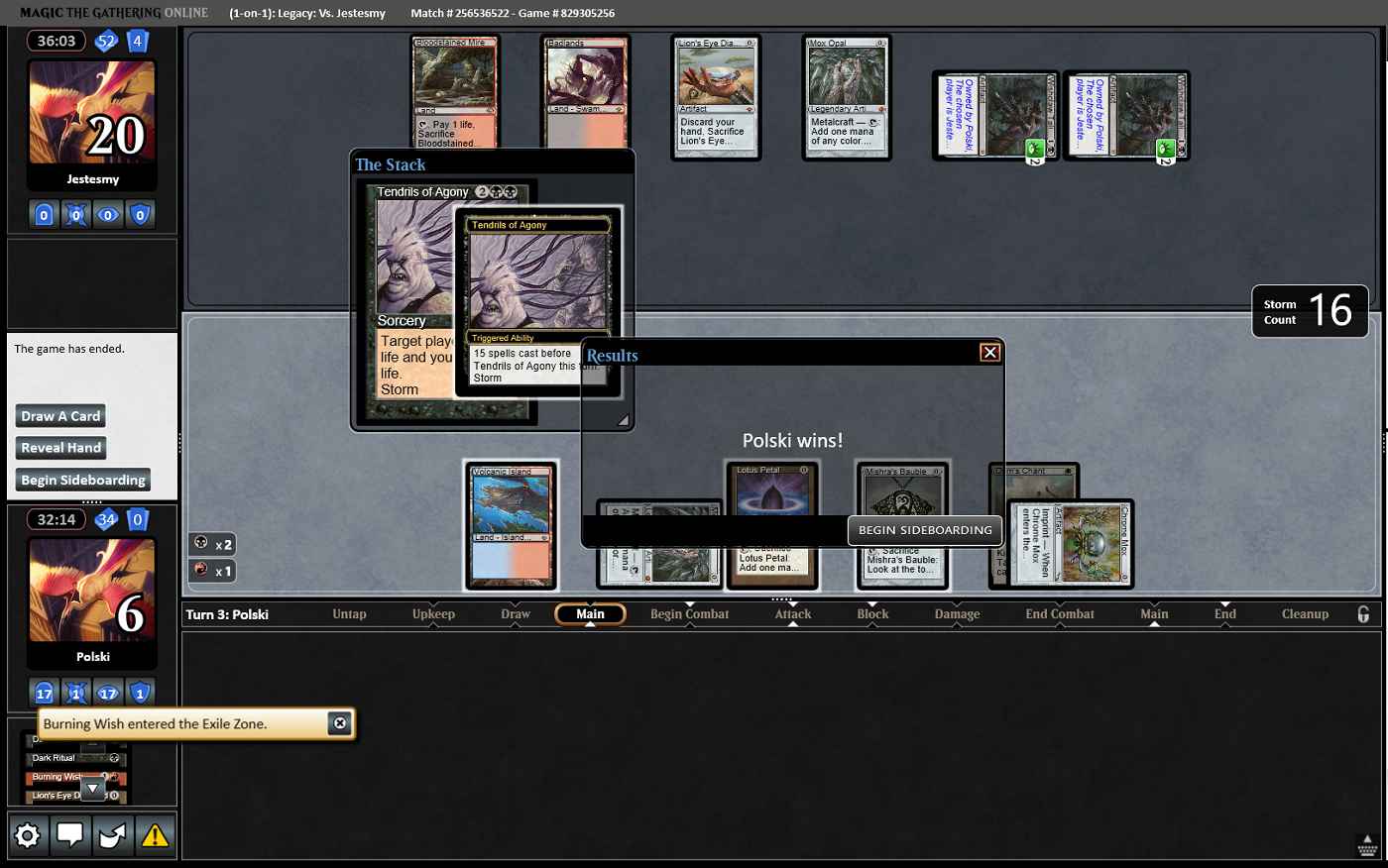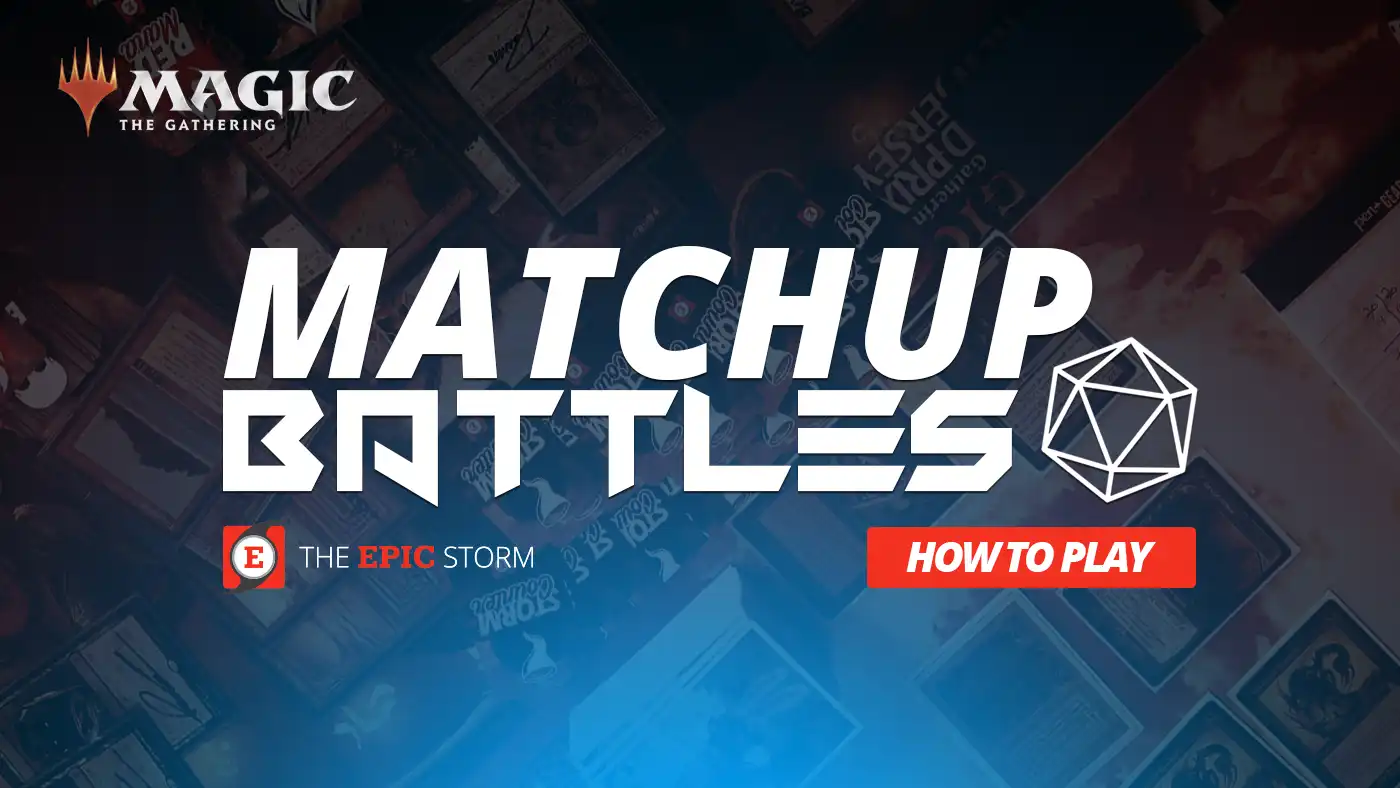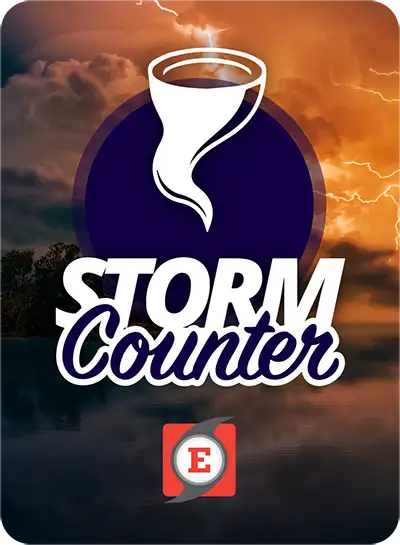The EPIC Storm is a Storm variant that has had a constant evolving decklist. The current form leans into [[Galvanic Relay]] while also being focused on artifacts and [[Wishclaw Talisman]]. Being a [[Galvanic Relay]] deck gives The EPIC Storm the ability to play through counterspells and have more payoff cards instead of needing eight slots in the main deck for the protection. This gives TES an angle to combo that previously didn’t exist. Version 13.7 of The EPIC Storm has attracted other Legacy players to try and play it and we have seen it become the most played storm deck. Therefore, knowing how to approach the mirror match will be valuable.
How does The EPIC Storm matchup against TES?
[[Wishclaw Talisman]], [[Burning Wish]], [[Galvanic Relay]], [[Echo of Eons]], [[Ad Nauseam]] – Since the printing of [[Echo of Eons]] and [[Galvanic Relay]], The EPIC Storm has been able to play more payoff cards. 13 payoff cards are the most this deck has ever played. Each one has its own strengths and weaknesses for a given matchup. As for the mirror, [[Galvanic Relay]] is not one we want. This matchup is all about speed and who can combo first. Setting yourself up to pass the turn and to give the opponent the opportunity to combo themselves is not a way to win this matchup. [[Wishclaw Talisman]] and [[Ad Nauseam]] are the preferred methods of comboing as it allows us to win in the same turn. [[Echo of Eons]] is risky, but it can also allow us to win in the same turn. If whoever casts an [[Echo of Eons]] can’t continue comboing then it is almost assured the other player will win, but The EPIC Storm is designed to win with [[Echo of Eons]], so it’s a risk worth taking.
[[Orim’s Chant]], [[Silence]], [[Thoughtseize]] – The EPIC Storm has little to stop other combos, but [[Silence]] effects are really good against Storm decks. A well-timed [[Silence]] after the opponent has cast rituals can completely devastate a Storm deck and set them back many turns. [[Silence]] doesn’t protect against opposing copies of [[Silence]] because casting it in response doesn’t do anything and if you cast a [[Silence]] to protect then they can cast a [[Silence]] back, so it makes the mirror rather interesting.
[[Lion’s Eye Diamond]], [[Lotus Petal]], [[Mox Opal]], [[Chrome Mox]] – In most matchups, it is best to hold artifacts to build Storm for a [[Galvanic Relay]], but in this matchup [[Galvanic Relay]] isn’t that great. In a game one or turn-one scenario when there are no other available lines, it can be worth the risk, but outside of that I usually avoid it. If I am not going for a [[Galvanic Relay]] line, then I like to play out my permanents because of opposing [[Echo of Eons]]. If the opponent casts an [[Echo of Eons]], I want to make sure I keep those resources and they are in play. Sometimes an [[Echo of Eons]] won’t lead to a combo, so having artifact mana in play will increase our chances of winning if the opponent has to pass the turn.
Deck List
the epic Storm
Main Deck
- 4 [[Burning Wish]]
- 4 [[Wishclaw Talisman]]
- 4 [[Brainstorm]]
- 4 [[Mishra’s Bauble]]
- 3 [[Galvanic Relay]]
- 1 [[Ad Nauseam]]
- 1 [[Echo of Eons]]
- 2 [[Silence]]
- 2 [[Orim’s Chant]]
- 4 [[Rite of Flame]]
- 4 [[Dark Ritual]]
- 4 [[Lion’s Eye Diamond]]
- 4 [[Lotus Petal]]
- 4 [[Mox Opal]]
- 3 [[Chrome Mox]]
- 1 [[Marsh Flats]]
- 4 [[Bloodstained Mire]]
- 2 [[Scalding Tarn]]
- 1 [[Badlands]]
- 1 [[Underground Sea]]
- 1 [[Volcanic Island]]
- 1 [[Scrubland]]
- 1 [[Plateau]]
Sideboard
- 3 [[Thoughtseize]]
- 1 [[Crash]]
- 4 [[Prismatic Ending]]
- 1 [[Galvanic Relay]]
- 1 [[Empty the Warrens]]
- 1 [[Slaughter Pact]]
- 1 [[Tendrils of Agony]]
- 1 [[Echo of Eons]]
- 1 [[Peer into the Abyss]]
- 1 [[Pulverize]]
Ways to Win This Matchup
Our Game Plan
The EPIC Storm mirror doesn’t have much play to it. The decks don’t have a ton of ways to interact with each other and the games only last a couple of turns. The better player isn’t always the one to win the game, but when there is a decision to make, it can be the difference between winning or losing the game. The biggest decision comes from knowing when to mulligan. Not every opening hand can win on the first turn. Those are the easy hands to keep, but the hands that don’t win on turn one can be slightly more challenging. A hand that is on the draw with a [[Galvanic Relay]] probably won’t be good enough. A slower hand that needs several cards to win also won’t be good enough, but a hand that is missing one mana or has access to a disruptive [[Silence]] is acceptable. Another tip I mentioned about the artifact mana is I always play them out. I have won more games by the opponent passing the turn post [[Echo of Eons]] than I have relying on a turn two or three [[Galvanic Relay]].
Sideboarding
-3 [[Galvanic Relay]] +3 [[Thoughtseize]]
The sideboarding in this matchup is fairly obvious. [[Galvanic Relay]] isn’t the combo route we want to take and [[Thoughtseize]] is the mirror breaker. [[Thoughtseize]] is the perfect card to beat a [[Silence]] or take a key combo piece away from the opponent. The opponent will be sideboarding the same way, so [[Thoughtseize]] is another reason to play out our permanents.
Game Play
For the first game, I was on the draw and my opponent spent their turn playing out a [[Badlands]] and two copies of [[Lion’s Eye Diamond]]. I kept a hand that had plenty of mana, [[Burning Wish]], and a [[Brainstorm]], so I decided to keep, and I drew a [[Wishclaw Talisman]] for my first turn. I was a little mana short of an [[Ad Nauseam]] or an [[Echo of Eons]]. My opponent had so much mana that I wanted to try something this turn, so I decided to cast the [[Brainstorm]].

I drew a [[Lion’s Eye Diamond]]! This would allow me to [[Echo of Eons]] from [[Burning Wish]].

Unfortunately, I drew six mana sources and an [[Orim’s Chant]]. There was nowhere to go from there. I just played out all of my artifacts and passed the turn leaving [[Orim’s Chant]] up.

My opponent made a smart move by playing out their copies of [[Lion’s Eye Diamond]] on their previous turn. It’s why I always recommend playing them out in the mirror for this exact scenario of getting another turn after an opponent’s [[Echo of Eons]]. They got to keep those resources. My opponent led their turn with a [[Brainstorm]] and then a [[Silence]]. Their [[Orim’s Chant]] wouldn’t protect them from me casting one, but it forced my hand if I had one. It lets them not get blown out by a [[Silence]] by using all of their mana and rituals first. In response, I cast my [[Orim’s Chant]] and then neither of us could cast a spell and the turn ended.

I had the opportunity to draw something to combo from this point, but I just drew a [[Lion’s Eye Diamond]] and passed the turn back. As anticipated, the opponent cast [[Wishclaw Talisman]] into [[Ad Nauseam]] and it was enough to win the game.

For the next game, I mulliganed down to six cards and kept a hand that was just needing a black source or an artifact to cast [[Ad Nauseam]]. I had a [[Dark Ritual]], and a [[Mox Opal]] was the only black source, but I didn’t have three artifacts. It was a close enough hand I decided to keep. I played my land and the artifacts, in case of an [[Echo of Eons]] from the opponent and ended my first turn. My opponent did the exact same thing for their first turn. I bricked on drawing what I needed for my second turn, and so did my opponent. I was lucky enough to get a third turn and drew another [[Lion’s Eye Diamond]]. This gave me Metalcraft, to cast both copies of [[Dark Ritual]], and plenty of mana afterwards to cast and activate [[Wishclaw Talisman]] for [[Ad Nauseam]]. The opponent didn’t have a [[Silence]], and it was enough to win.


I got pretty unlucky the first game with the [[Echo of Eons]]. I didn’t need much to win that game, but sometimes that’s how luck works. It’s why I always recommend playing out all of the permanents in the mirror for scenarios like that. My opponent did and they were rewarded for that. In most cases, [[Echo of Eons]] would win that game for me, but the opponent played for that luck to be on their side and won because of it. This matchup doesn’t have the most decisions to be made, but when there is a decision to be made it determines the outcome of the game. It’s why knowing matchups inside and out are extremely important. I look forward to playing many more mirror matches and I hope you enjoyed this article, can take some of the lessons learned, and apply them to your own playtesting.
